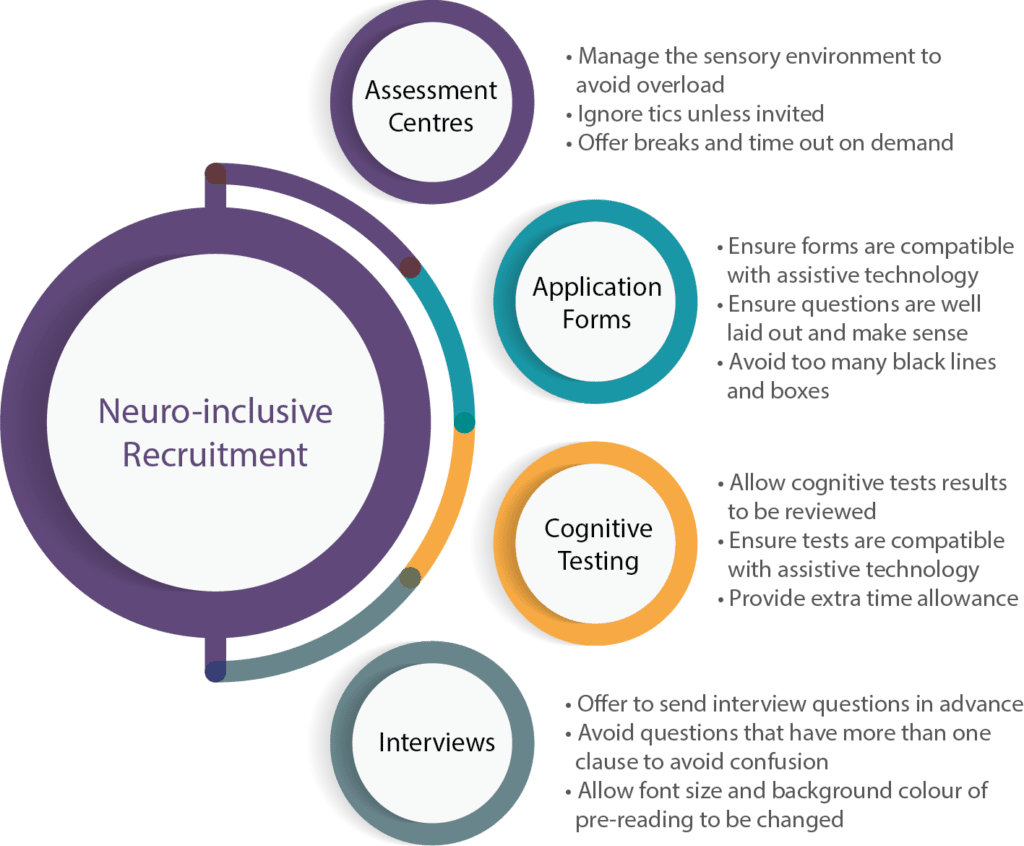Creating accessible recruitment and selection processes
For neurominorities, there are many obstacles in typical recruitment processes that put them at a disadvantage compared to their neurotypical peers. Completing application forms, participating in assessment exercises, and performing in interviews can be a challenge. Even something many consider to be simple, such as travelling to the interview, can be a nightmare. However, this does not mean that they are the wrong candidates for the role.
The neurodiverse/neurodivergent community possess a lot of skills that are needed in the workforce, so why do they face so many obstacles in the recruitment process? As a Disability Confident Leader and a firm advocate for neurodiversity inclusion, Genius Within have come up with a few helpful tips to make recruitment inclusive for neurodiversity.
What does accessibility look like?
The term neurominority covers individuals with a range of conditions. This can make it confusing for recruiters to know the best way to make recruitment inclusive.
Being accessible doesn’t mean avoiding any recruitment methods, it just means making sure that the approach matches the skills required for the actual job. For example, if you need an analyst whose job is to crunch numbers, you do not need an assessment centre but you might chose a numerical cognitive test. If you have a job that relies on visual skills, don’t use a talking-only recruitment technique!
By adapting your processes and removing unintentional barriers, you can attract candidates with the right skills for your roles, not just the ones that fit into your recruitment process.
It is also important to remember that you are required to make the same reasonable adjustments in recruitment as would be available in the eventual job. This can be difficult as conditions overlap and sometimes people are misdiagnosed. So, the best approach is often to just ask “how can we support you to work at your best?”

A final note…
Though recruitment might not be the best place to ‘shine’ and a new job transition can be harder for neurominorities, all people with disabilities tend to make incredibly specialist, loyal and reliable employees once they are settled. Research globally and in the UK has repeatedly indicated that employees with differences have lower turnover and lower absenteeism, as well as higher company loyalty when adjustments and accommodations are in place. You can get adjustments in situ from day one, we do not recommend waiting until there is a problem!
